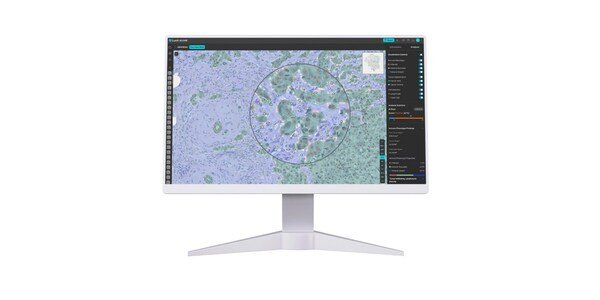Lunit Enters into Research Collaboration to Explore the Use of AI to Improve the Effectiveness of Immunotherapy
30 October 2023 | Monday | News

Lunit (KRX:328130.KQ), a leading provider of AI-powered solutions for cancer diagnostics and therapeutics, announced a research collaboration with The University of Texas MD Anderson Cancer Center to analyze the use of Merck's (known as MSD outside the US and Canada) Keytruda (pembrolizumab), a type of immunotherapy drug used in cancer treatment, in multiple cancer types. The project will use Lunit's proprietary AI solution for tissue data analysis, Lunit SCOPE IO.
Lunit will collaborate with Aung Naing, M.D., professor of Investigational Cancer Therapeutics at MD Anderson, as the lead Principal Investigator (PI) for this study. The goal of the study is to evaluate AI technology with the objective of improving patient data analysis and increasing the effective use of treatment for patients with different types of cancer. Lunit and Dr. Naing team plans to assess Merck's clinical data by leveraging the capabilities of Lunit SCOPE IO, AI software that analyzes H&E-stained tissue slides to enable immune phenotyping and more.
"There is currently a lack of effective biomarkers for immunotherapy," said Brandon Suh, CEO of Lunit. "Existing methods have limitations. The landscape is changing rapidly and state-of-art technologies such as AI are playing a significant role in enabling new biomarkers. We are particularly excited to be working with Dr. Naing to analyze biomarkers for pembrolizumab, one of the most important immunotherapy drugs."
Lunit SCOPE IO has been trained with more than 500,000 H&E slides and more than 10 million cell annotations from over 150 pathologists. It detects cancer area, stroma, and tumor infiltrating lymphocytes (TIL), an important immune cell type that plays a key role in immunotherapy. Among other analyses, SCOPE IO generates an immune phenotype map based on TIL density within the tumor microenvironment, and supports analysis in more than 16 cancer types.
Most Read
- Innovations In Magnetic Resonance Imaging Introduced By United Imaging
- Management of Relapsed/Refractory Multiple Myeloma
- 2025 Drug Approvals, Decoded: What Every Biopharma Leader Needs to Know
- BioPharma Manufacturing Resilience: Lessons From Capacity Expansion and Supply Chain Resets from 2025
- APAC Biopharma Review 2025: Innovation, Investment, and Influence on the Global Stage
- Top 25 Biotech Innovations Redefining Health And Planet In 2025
- How Health Systems Are Reshaping Drug Adoption, Partner Models, and Market Access in 2026
- The New AI Gold Rush: Western Pharma’s Billion-Dollar Bet on Chinese Biotech
- Single-Use Systems Are Rewiring Biopharma Manufacturing
- The State of Biotech and Life Science Jobs in Asia Pacific – 2025
- Asia-Pacific Leads the Charge: Latest Global BioSupplier Technologies of 2025
- Invisible Threats, Visible Risks: How the Nitrosamine Crisis Reshaped Asia’s Pharmaceutical Quality Landscape
Bio Jobs
- The State of Biotech and Life Science Jobs in Asia Pacific – 2025
- Avantor’s New CEO Ligner Aims to Unlock Global Potential and Deliver Shareholder Value
- AstraZeneca Commits $50 Billion to U.S. Expansion by 2030 in Biggest-Ever Global Investment
- Thermo Fisher, SAMRC, and South Africa’s Department of Science and Innovation Launch CATIR to Nurture Next-Gen Scientists
- Cube Biotech Appoints Former Sartorius CEO Dr. Joachim Kreuzburg to Board of Directors
- FDA’s AI Transition Marks a Turning Point in Drug Review: Industry Faces Pressure to Adapt Amid 20% Workforce Cut
- WuXi XDC Completes Mechanical Build of Singapore Bioconjugate Manufacturing Hub
News
Editor Picks











